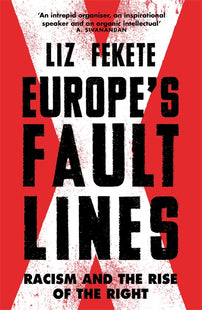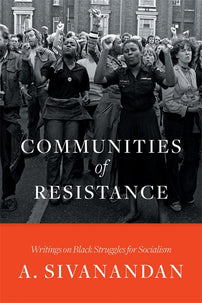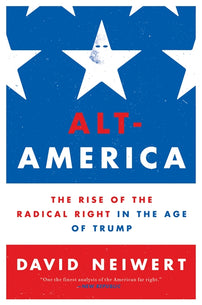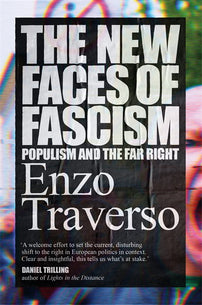White supremacy, racial patriarchy: two sides of the same coin
The defence of Christian identity is now central to the far Right’s misogynistic and racist campaigns, and some religious leaders are colluding.
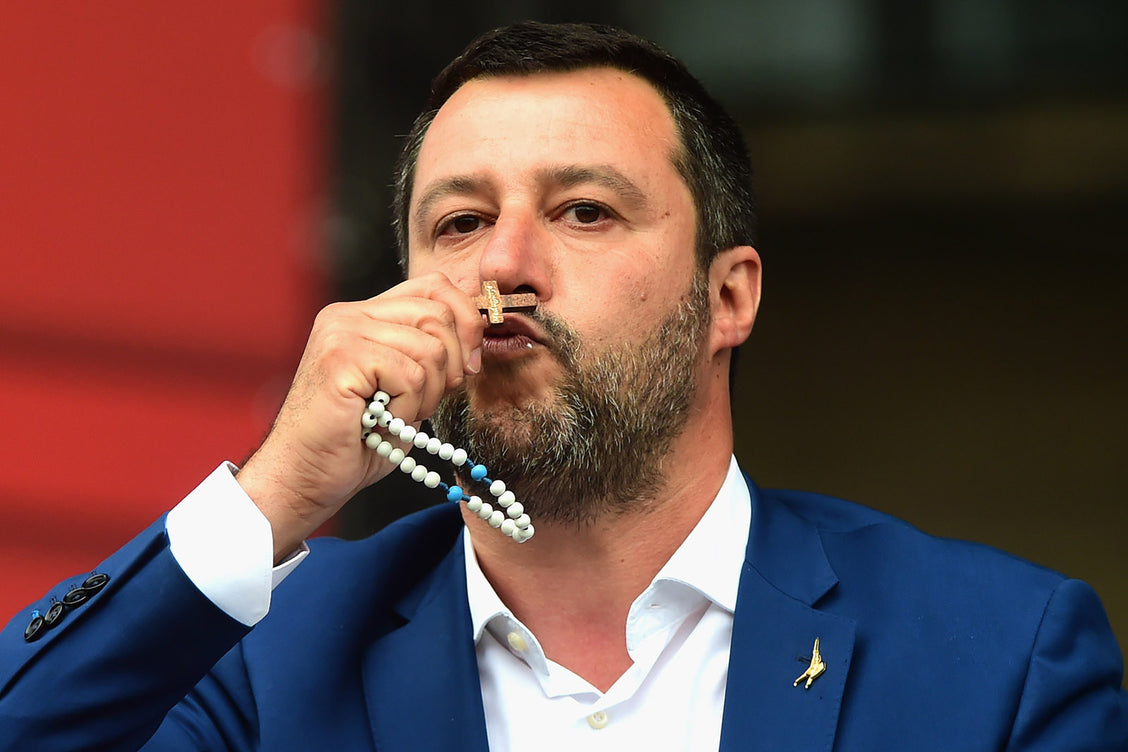
See our key books for understanding Christianity's radical legacy!
Over recent years, themes of Christian identity and the defence of the traditional family and heterosexual norms have become central to contemporary far-right politics as well as the intellectual currents associated with the New Right. But to fully understand the depth of today’s hard Right assault on sexual minorities and women, first we need to understand how far-right culture wars have been nurtured by Islamophobia, militarism and the war on terror.
Just as in the late 1960s and early 1970s in the United States it was the Vietnam War that provided the fuel and frame of reference for the growth of White Power, the war and militarism unleashed since 2001 has provided the combusting force for racism, Islamophobia and misogyny in Europe today. Following the attacks on the World Trade Center and the Pentagon in 2001, and Europe’s cooperation with the invasions of first Afghanistan and then Iraq that followed, an anti-multiculturalism discourse has become deeply rooted in European culture. It may be ironic to think of this today, but in the initial stages of the war on terror, when world leaders like Tony Blair were justifying the invasion of Afghanistan as a ‘humanitarian intervention’ to liberate veiled Muslim women, the message of extreme-right anti-immigration movements was a mirror of the mainstream view that Islam posed a threat to women, gay rights and a secular order. To drive that point home, in more overtly racist terms of course, far-right posters, videos and social media campaigns used images of minarets as bayonets and the wombs of burqa-clad Muslim women as hand grenades ready to explode.
Now, the cultural references and symbols of the racist Right are changing. While some anti-immigration politicians still purport to defend secular values, the far-right’s primary framework is as protectors of religion – that is, of course, if the religion under threat is fundamentalist and Christian, and perceived to be white. The most successful hard right political crusaders against Islam and Muslims, such as Matteo Salvini in Italy and Viktor Orbán in Hungary, claim to be staunch defenders of Europe’s Christian tradition. For some, like President Donald Trump’s former advisor Steve Bannon, who (not very successfully) attempted to introduce ‘gladiator schools' for right-wing ‘cultural warriors’ into Europe, it’s Europe’s Judeo-Christian tradition that is emphasised.
Speaking in electoral terms, and now that Islamophobia and xeno-racism have been banked by successful far-right parliamentary parties such as the Freedom Party in Austria, Alternative for Germany, The League in Italy and National Rally in France, their reactionary and hate-driven politics know no bounds. Every day they are emboldened to extend their attacks, not just on Muslims, Black people, migrants and refugees, but on women and LGBTQ communities. In this ‘crusade’ to re-establish ‘tradition’, the religious (i.e. Christian) nature of the ‘crusade’ is emphasised – though whether Christianity is religion or culture in this far-right viewpoint is a moot point.
Yet Europe is not the United States, where Christian fundamentalist groups have been central to white power movements. But, US Christian fundamentalists have in recent years been trying to incubate US-style Christian identarian movements across the continent. According to an investigation by Open Democracy, groups like the Alliance Defending Freedom (ADF), the American Center for Law and Justice (founded in 1990 by American televangelist Pat Robinson), and the Catholic fundamentalist movement Tradition, Family and Property (TFP), which was actually founded in Brazil, have sent at least $50 million of ‘dark money’ from the US to shore up fundamentalist Christians in their campaigns against social and reproductive rights. While in Italy there is huge opposition from the Catholic church to the anti-migrant message of the far Right, US Christian fundamentalists have made some inroads in Verona, which has a history of far Right and ultra-Catholic movements and was one of the main cities of the Salo Republic, a nazi puppet state during the second world war. The anti-abortion 13th international conference of the World Congress of Families was hosted in Verona in 2019, with support from The League.
US Christian fundamentalists have also made inroads in Poland where the ruling hard Right Law and Justice (PiS), provide fertile terrain for the anti-feminist far Right and have links with the Ordo luris institute (again linked to the TFP). Its Director of the Centre for Bioethics, Blazek Kmieciak, says that women planning to have abortions should be forcibly placed in mental health units. Meanwhile, in Finland, an online publication, Oikea Media (Right media), has taken on the functions of a New Right think tank. According to professor Risto Saarinen, this signals that there is now ‘a connection between the New Right and conservative Christians in Finland’. He has also observed a shift in the rhetoric of the anti-immigration Finns Party leader Jussi Halla-aho, who had previously stressed that he is not religious, towards themes of Christian identity.
There are many powerful figures within all Christian denominations, as well as, crucially ordinary priests, particularly in the movement to welcome refugees, who are fighting back. They are angered by what they see as the yoking of Christianity to the far Right cause and the expropriation of Christian symbols for racist ends. But this opposition, courageous as it is, should not blind us to the fact that some elements of the Church are willing collaborators in today’s hard Right ‘culture wars’. Particularly in Poland, Hungary and Greece, there are disturbing currents within sections of the Christian tradition that are profoundly hostile to the sexual revolutions of the 1960s and are eager to wind back the clock. Hard right electoral parties are embracing white supremacy, either covertly or overtly, and their racist movements seem more respectable if they appear to be backed by a Christian theology. What is particularly dangerous now is the links between white supremacist far-right movements and white identitarian Christian zealots. Both, it would seem, are happy to establish a white theology based on racial patriarchy where uppity black and brown women who do not assimilate are silenced and punished, as are white women (race traitors) who fraternise with the Oriental and black enemy.
So the first thing we are witnessing is the manipulation of history, Christian myths and symbols to further far-right propaganda and identity politics. The Christian Crusades against Islam – so central to the Eurabia conspiracy theory first developed by Bat Ye’or (real name Gisèle Littman) – have been a constant reference point for the far Right, particularly since 2001 and Europe’s participation in the war on terror. Notable here is Spain, where the anti-immigration, anti-feminist Vox party demands that Andalucia’s regional day be changed so as to commemorate the 1492 conclusion of the Christian reconquest of Spain, seven centuries after the first Moorish armies arrived.
But the high priest of the far Right’s fetishisation of Christian symbols is Italy’s melodramatic interior minister Matteo Salvini. He has promised to create a European-wide alliance against immigration and is fond of brandishing a bible, rosary or the Crucifix at political rallies and press conferences. During his recent tour of Italian beaches to whip up support for The League in a general election, Salvini has been repeatedly photographed in swimming gear, sporting a necklace with a large heavy crucifix on his bare chest, often ogling or cavorting with young women in bikinis. Although never one to lose an opportunity to display his virility, Salvini has also taken to invoking the spirit of the Virgin Mary. At one far-right rally in Milan on 18 May, Salvini entrusted the gathering to the six patron saints of Europe: St Benedict of Norcia, St Brigid of Sweden, St Catherine of Siena, Saints Cyril and Methodius and St Teresa Benedetti of the Cross. He then kissed his rosary, as he looked up at the gold statue of the Virgin Mary on Milan’s cathedral declaring ‘I entrust, Italy, my life, and your lives to the Immaculate Heart of Mary, whom I’m sure will bring us to victory’. At the same rally, he criticised Pope Francis, saying ‘I say that the policy of this government is eliminating the dead in the Mediterranean with pride and Christian charity’.
Salvini’s mixing up of the sex instinct with the religious instinct would perhaps be funny if it wasn’t so sinister. Just like Bolsanaro in Brazil, who has declared that he is fulfilling the mission of God, Salvini is attempting to mould an aggressive Catholicism around a hyper-masculinised personality cult. The crucifix and the rosary become emblems of far-right Crusader-style military erotica, to be wielded by real men against the limp humanitarianism of Pope Francis who has spoken out on behalf of refugees and, most famously, in 2013 lamented ‘the globalisation of indifference' at an open-air mass in Lampedusa, held against the backdrop of the hulks of shipwrecked migrant boats.
Another manipulator of Christian themes is Hungary’s Prime Minister Viktor Orbán who regularly invokes the need to defend Christian Europe from the Muslim invasion and was the only European leader to attend the inauguration of the far-right Brazilian president Jair Bolsanaro. Like Salvini, Orbán attempts to build his Christian appeal on a quasi-mystical oratory. Known in the Hungarian Reformed Church, as a ‘leader of souls’, Orbán speaks of the ‘Christian National Idea’, a notion associated with the anti-Semitic Christian national identity movements that flourished in the inter-war regency government of Admiral Miklós Horthy. Drawing on a fundamentalist reading of Calvin’s The Doctrines of Grace (which dwells on man’s enslavement to sin, the perverseness of human nature and the capacity of a chosen ‘elect’ to overcome ‘total depravity’ and draw close to God), Orbán sees religion as a means of rewarding the elect and punishing the poor. This not only shores up the cult of the heroic Orbán, the captain of the Hungarian ship bent on steering Europe away from the rocky shores of racial, cultural and moral suicide, but informs foreign and domestic policy. A special ‘Hungary Helps’ programme has been set up to aid persecuted Christians in Africa and the Middle East. The Hungarian State Opera has also bowed to the far-right Christian identity agenda, saying that in forthcoming seasons it will showcase only works with Christian themes.
And in all this there are high-ranking religious figures who are willing enablers. In the Vatican, the anti-Pope Francis faction epitomised by the US Cardinal Raymond Burke who believes that resisting ‘large scale Muslim immigration is an act of patriotism’ and that homosexuals are spreading a 'gay agenda' in the Vatican. In Hungary, Lászlo Kiss-Rigó, the Bishop of Szeged, is said to operate ‘at the nexus of the prime minister’s interests’ and believes that most migrants at the border are wealthier than the police repelling them, and only a tiny minority are refugees. In eastern Poland, in Bialystok, a region in Podlasie, where far-right and ultra-nationalist football hooligans threw flash bombs, rocks and glasses as they attempted to block Poland’s first-ever Pride LGBTQ equality march chanting ‘God, honour and motherland’ and ‘Bialystok free of perverts’, the Catholic Archbishop called on his congregants to oppose the march, ‘an initiative foreign’ to the region, on the basis of the defence of Christian values.
These are worrying signs that senior church figures in Europe have corrupted themselves by aligning with anti-immigrant, anti-Islam politics and the violence of the far Right. At the same time, other high-ranking religious leaders, particularly within the Catholic tradition, are speaking out. But an example from Greece, where several Bishops within the Orthodox church spoke warmly of the neo-nazis of Golden Dawn prior to their criminalisation in 2013, demonstrates that there is no room for complacency. Prior to the arrest of Golden Dawn politicians in September 2013, while the Orthodox church as a whole remained neutral, many Bishops, with their deep hostility to Islam and a crusading anti-homosexuality, were seduced by Golden Dawn, which posed as protectors of the Christian tradition in the face of a war-like Islam. One of the worst instances of collusion came over the performance in Athens of Terence McNally’s play ‘Corpus Christi’ which has been accused of blasphemy. Over several weeks in 2012, the police and prosecution service looked the other way while the Chytirio Theatre in Athens came under siege from rioting ‘religious citizens’, clergymen and Golden Dawn members who threatened to kill actors performing in the play, finally beating them up and causing substantial damage to the theatre.
Isn’t it high time that the far-right war-mongers and crusaders were finally driven out of the Christian temple?
Liz Fekete is Director of the Institute of Race Relations, where she has worked for over thirty years. She heads its European Research Programme (ERP) and is Advisory Editor to its journal Race & Class. She is the author of A Suitable Enemy: Racism, Migration and Islamophobia in Europe and most recently Europe’s Fault Lines: Racism and the Rise of the Right.
[book-strip index="1" style="display"]